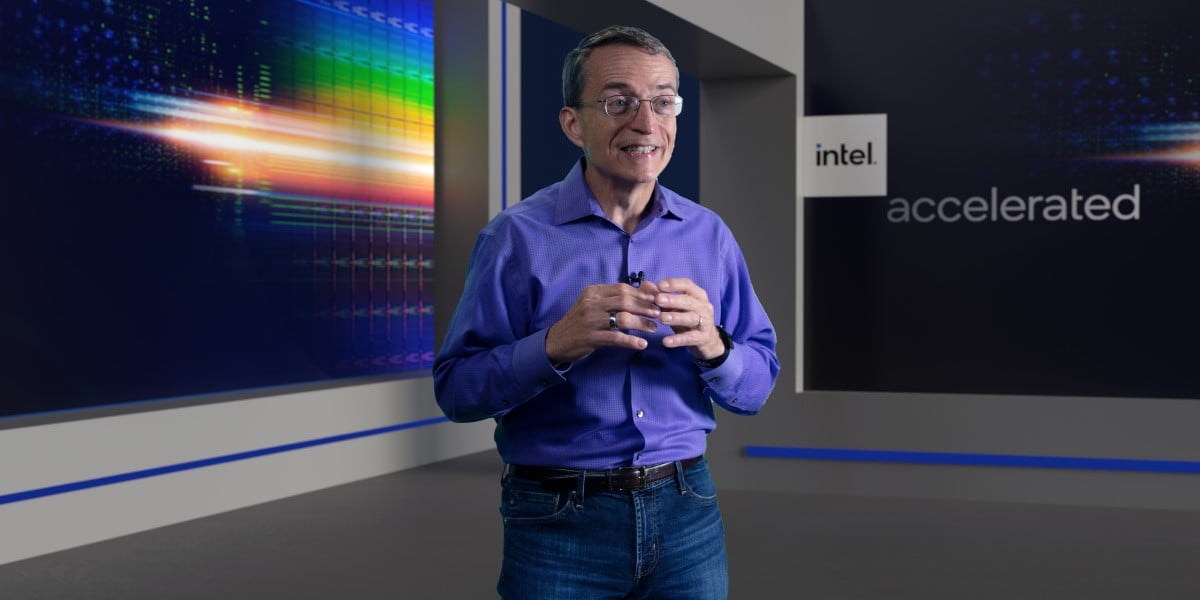Intel Wants Another €3.2b From German Gov For Magdeburg Mega Fab

Intel is holding out its cap for billions of euros in German subsidies – on top of what has already been committed – to get its planned Magdeburg "mega fab" back on track.
According to local media, Intel executives recently approached the German economy minister in hope of securing an extra €3.2 billion Euros in subsidies on top of the €6.8 already pledged.
The Magdeburg site, unveiled last March as part of a €33 billion ($35.3 billion) investment in European chipmaking, is slated to be the home of a massive advanced fabrication site when it comes online in 2027. When complete, it is expected to produce Intel's most advanced semiconductor tech at an estimated cost of €17 billion.
The facility was supposed to break ground in the first half of 2023. To secure the project, the German government committed €6.8 billion ($7.3 billion) of taxpayer funding.
However, in the months since announcing the investment, Intel's fortunes have taken a turn for the worse. The chipmaker has endured quarter after quarter of economic headwinds, leading to a $700 million net loss in Q4 on revenues that slipped 32 percent from the year prior.
- 5% of the cloud now runs on Arm as chip designer plans 2023 IPO
- Could RISC-V become a force in high performance computing?
- Semiconductor world in for a rough ride as chip bubble bursts at the high end
- Intel cuts some workers' pay to fund its future
Chipzilla didn't directly address The Register's questions regarding government subsidies or the future of the site should that funding fail to materialize.
An Intel spokesperson did say that since announcing the Magdeburg site, "much has changed: geopolitical challenges have become greater, semiconductor demand has declined, and inflation and recession are disrupting the global economy." The spokesperson also reiterated comments made by Intel executives of the past few weeks, emphasizing the company's commitment to building in Germany.
Speaking last month, Intel's chief global operations officer (CGOO) said the company still planned to move forward with the fab project and is hashing out final funding details with the German government.
The heart of the problem appears to be that building semiconductor fabs has become considerably more expensive since the project was first announced. Late last year, the chip shop estimated it would cost 20 billion euros to complete.
Intel has run up against similar challenges in the US, where the cost of its two new Arizona fabs ballooned from $10 billion a piece in 2021 to more than $15 billion a little over a year later. The rising cost of building fabs – a notoriously capex-intensive prospect – drove Intel to seek financial assistance from private equity firm Brookfield Asset Management last August.
A worsening economic climate has forced the CPU giant to take even more drastic action in recent quarters, with CEO Pat Gelsinger committing to cut Intel's spending by $10 billion a year by the end of 2025.
These cuts have included layoffs, pay cuts, and the cancellation of previously announced projects – including a $700 million liquid and immersion cooling lab in Oregon and a $200 million research and development facility in Israel. Intel has also dodged questions about a proposed packaging facility in northern Italy, telling reporters that project would depend in part on the passage of a European CHIPs bill.
And it appears a rumored expansion to Intel's Vietnamese facilities may no longer be on the table. As Bloomberg reported this week, Vietnamese officials briefly announced they were courting a $3.3 billion investment by the chipmaker, only to redact Intel's name from press materials early Wednesday.
According to the outlet, Intel had been in talks with Vietnamese officials to invest $3.3 billion at its site outside Ho Chi Minh City.
In response to questions, Intel offered the following canned statement: "Vietnam is an important part of our global manufacturing network, but we have not announced any new investments." ®
From Chip War To Cloud War: The Next Frontier In Global Tech Competition
The global chip war, characterized by intense competition among nations and corporations for supremacy in semiconductor ... Read more
The High Stakes Of Tech Regulation: Security Risks And Market Dynamics
The influence of tech giants in the global economy continues to grow, raising crucial questions about how to balance sec... Read more
The Tyranny Of Instagram Interiors: Why It's Time To Break Free From Algorithm-Driven Aesthetics
Instagram has become a dominant force in shaping interior design trends, offering a seemingly endless stream of inspirat... Read more
The Data Crunch In AI: Strategies For Sustainability
Exploring solutions to the imminent exhaustion of internet data for AI training.As the artificial intelligence (AI) indu... Read more
Google Abandons Four-Year Effort To Remove Cookies From Chrome Browser
After four years of dedicated effort, Google has decided to abandon its plan to remove third-party cookies from its Chro... Read more
LinkedIn Embraces AI And Gamification To Drive User Engagement And Revenue
In an effort to tackle slowing revenue growth and enhance user engagement, LinkedIn is turning to artificial intelligenc... Read more

